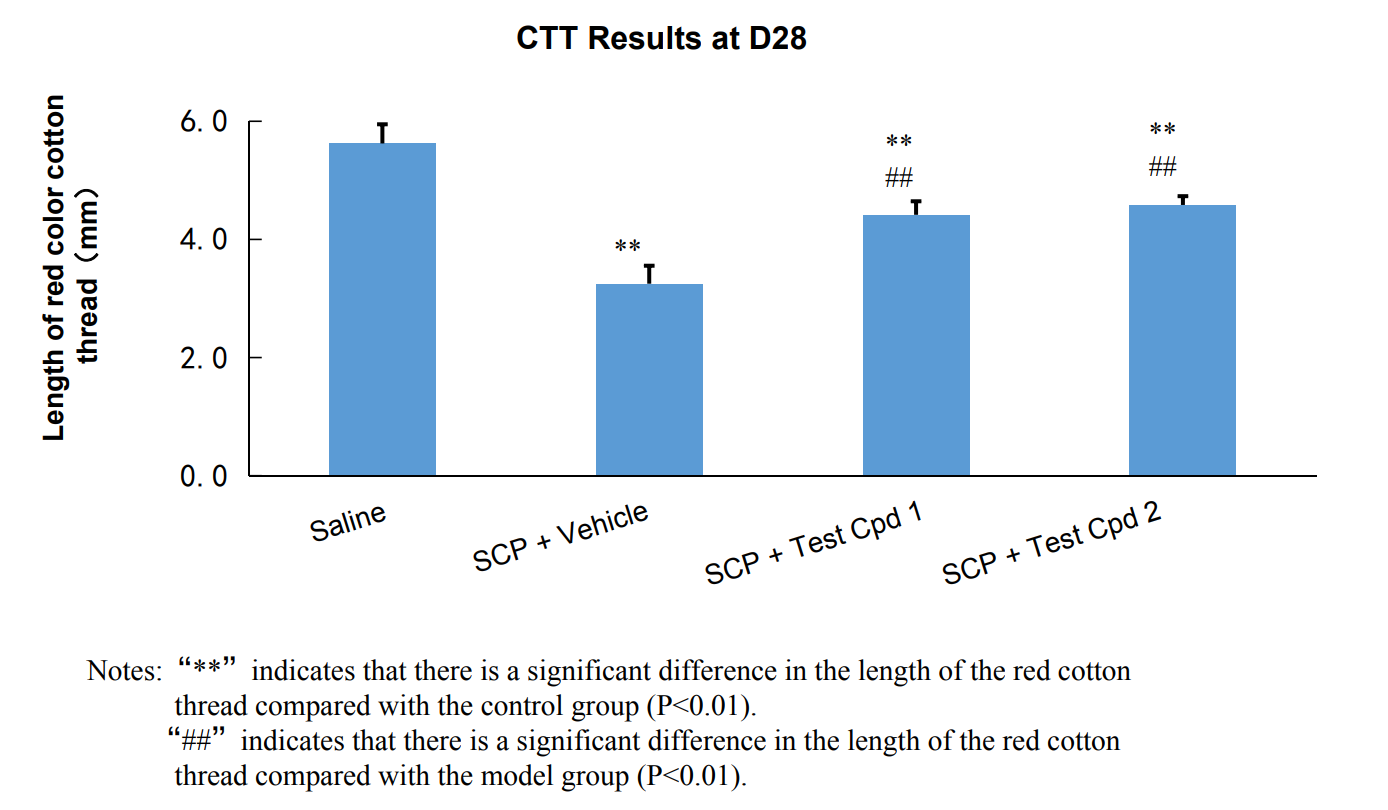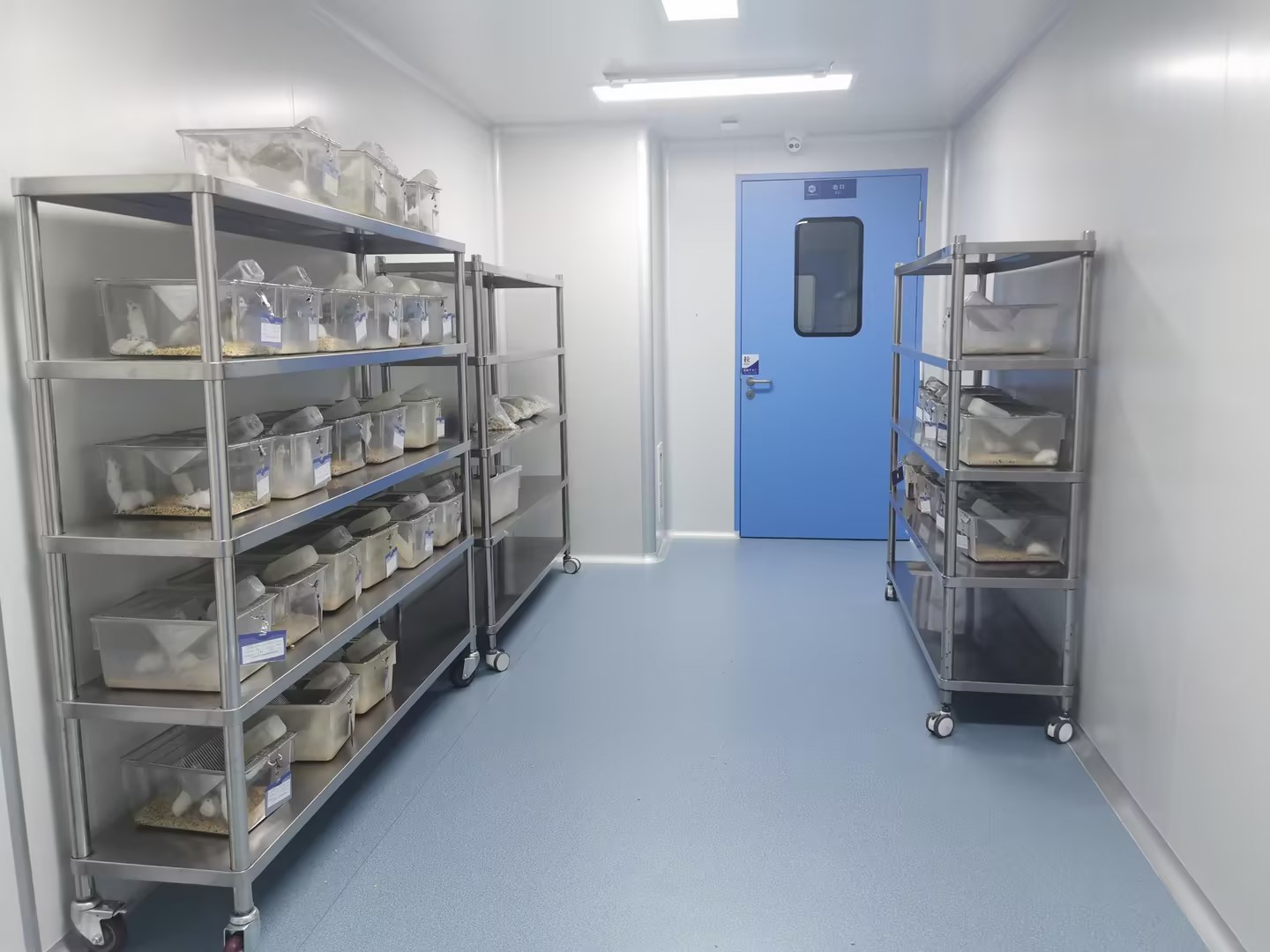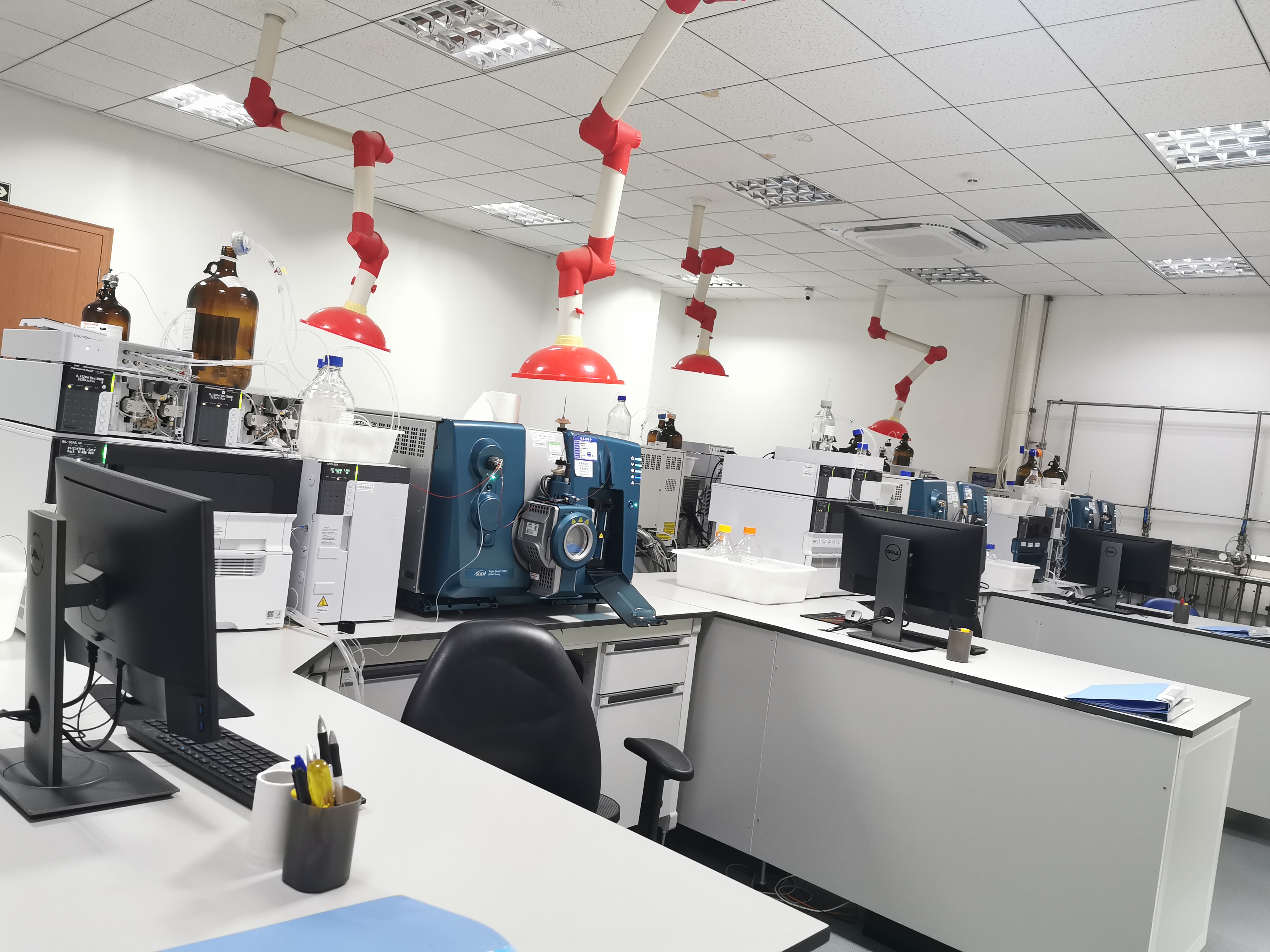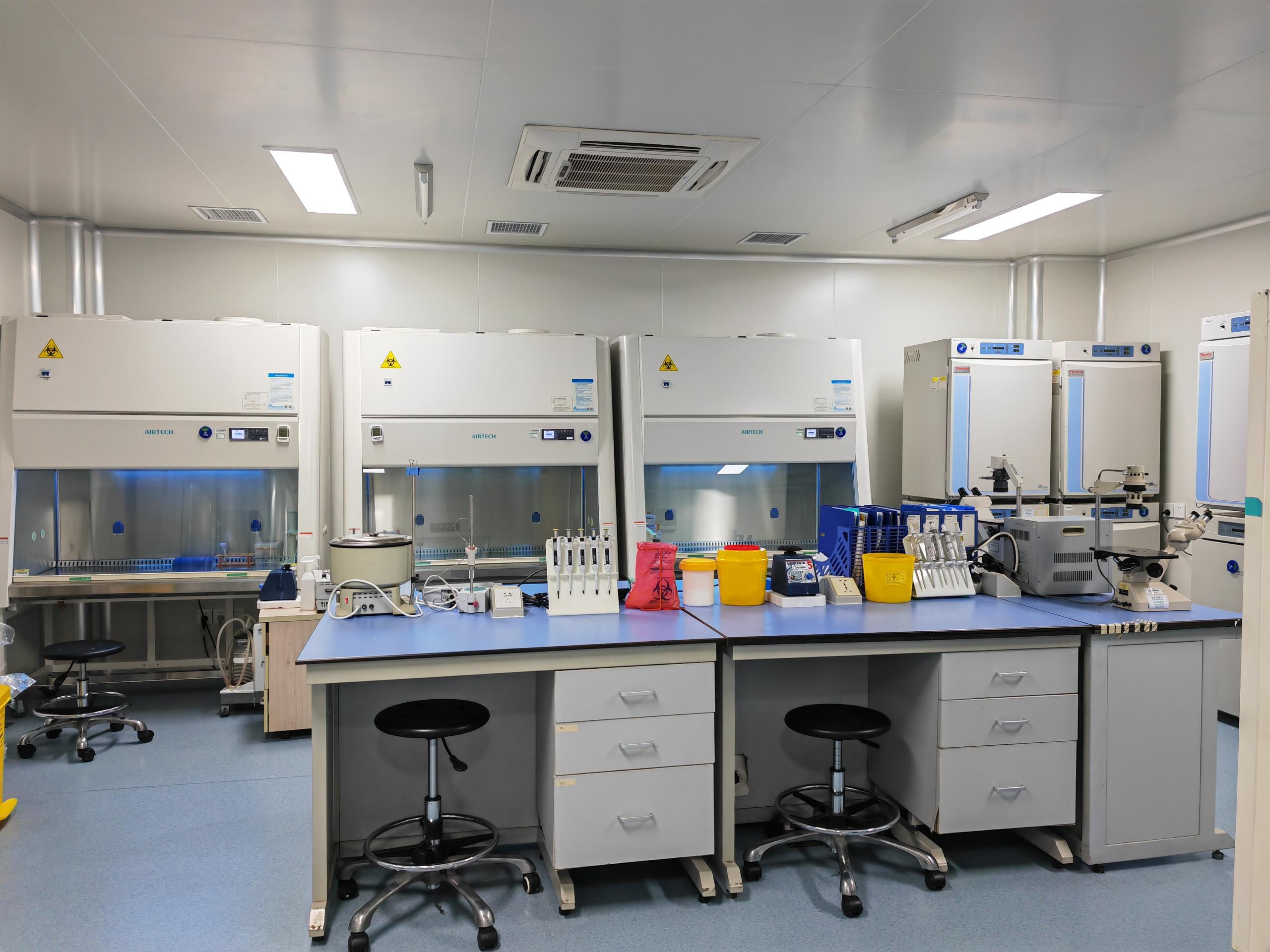









Dry eye, also known as keratoconjunctival sicca, is one of the most common ophthalmic diseases in which the tear film is abnormal and the ocular surface epithelium becomes dry due to low secretion of the tear glands in the eyes and/or the whole body. Shengsu has established a mouse model of compound dry eye caused by low-humidity and scopolamine hydrobromide (SCP) injection, which can provide a stable animal model for the evaluation of the activity of related drugs.
• Animals: male C57BL/6J mice.
• Induction method: Animals are kept in a low-humidity environment (relative humidity <35%), and SCP (5 mg·mL-1, 0.1 mL/TID) is injected subcutaneously.
• Evaluation: phenol red cotton thread tear test (CTT).









You can contact us through the right side, we will assign a professional consultant to answer your questions.


The SPF and general animal rooms, with more than 600 square meters, can perform experiments on mice, rats, dogs, monkeys, rabbits, small pigs, and many other genera.
Oral gavage, sublingual administration, injection, topical application, whole blood collection, excreta collection, tissue collection, eye tissue collection, cerebrospinal fluid collection, bile duct intubation, etc.
A strict quality management system is in place to ensure the reliability of data and validity of research.

There are more than 400 sets of various instruments such as 16 sets of LC-MS/MS systems, 2 sets of MSD, analytical balances of 1 part in a million and 1 part in 100,000, respiratory anesthesia machines, IVC systems, various incubators, tissue homogenizers, centrifuges and so on.
In vitro metabolic studies, including metabolic studies based on liver microsomes, hepatocytes, liver S9, CYP enzymes, etc;
Analysis of biological samples for PK, tissue distribution and excretion experiments, development and validation of analytical methods, parameter calculations, etc.
The laboratory follows GLP (Good Laboratory Practice) and ISO standards to ensure data reliability and accuracy.

More than 100 bead cell banks have been established.
In vitro cell proliferation inhibition, Caco-2 permeability, and hepatocyte-related experimental studies can be performed.
The laboratory has a cell bank of more than 100 beads. The laboratory strictly follows the experimental practice to ensure the accuracy and reproducibility of the data.

Customer first, customer satisfaction!

Customer First, Customer Satisfaction!